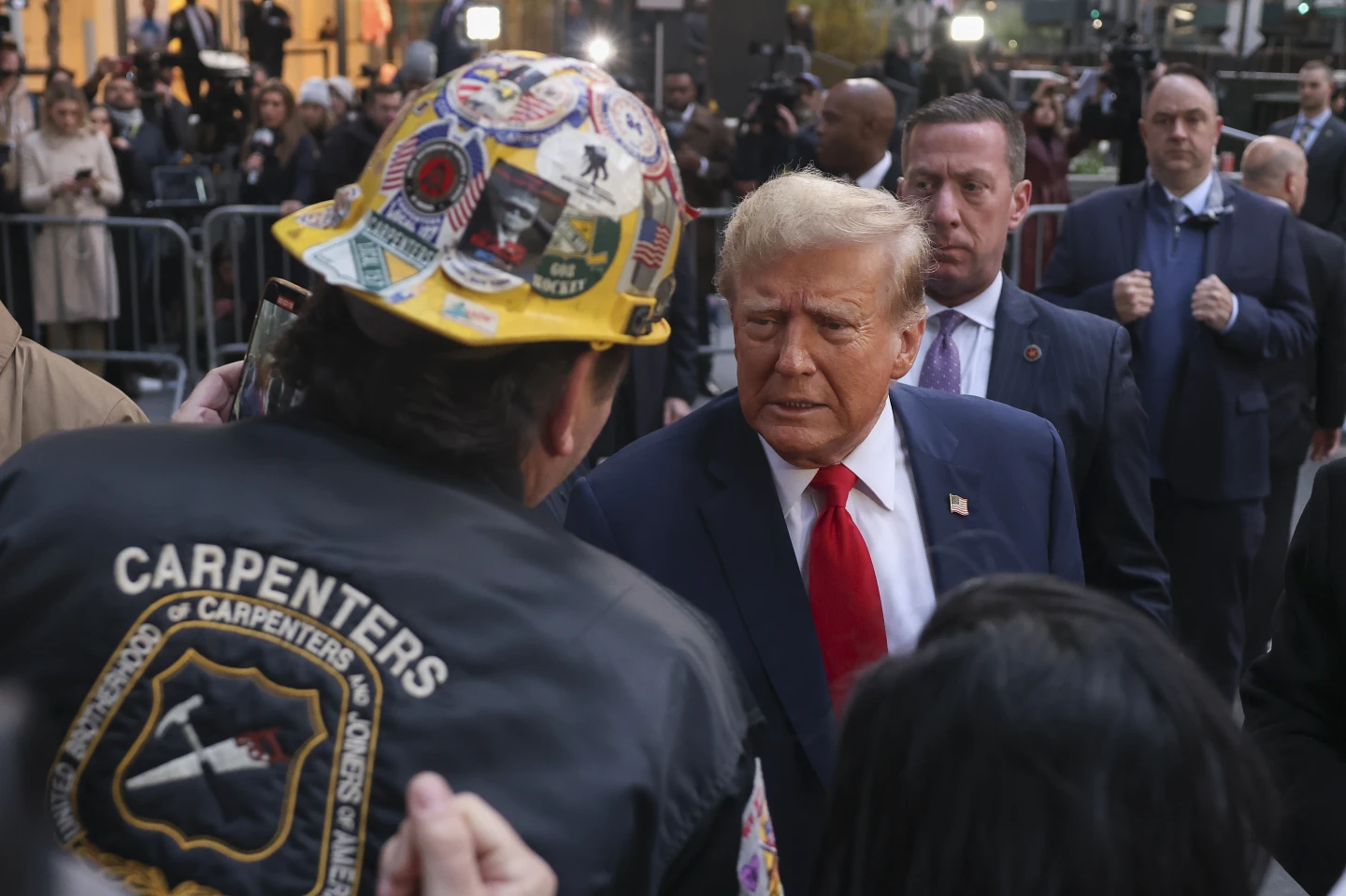Working-class voters helped Republicans make steady election gains this year and expanded a coalition that now includes rank-and-file union members, highlighting one of President-elect Donald Trump’s latest Cabinet picks: a Republican congresswoman with labor support to be his labor secretary.
Oregon Rep. Lori Chavez-DeRemer narrowly lost her quest for a second term this month, despite strong support from union members, a major component of the Democratic base that has shifted in the Trump era to a Republican Party typically aligned with business interests.
“Lori’s strong support from both the Business and Labor communities will ensure that the Labor Department can unite Americans of all backgrounds behind our Agenda for unprecedented National Success – Making America Richer, Wealthier, Stronger and more Prosperous than ever before!” Trump said in a statement announcing his decision Friday night.
For decades, labor unions have supported Democrats and been met with opposition by Republicans. However, thanks to Trump’s populist appeal, a sizable proportion of his working-class constituency voted for Republicans this year, despite the fact that key unions, including the AFL-CIO and the United Auto Workers, favored Democrat Kamala Harris in the presidential election.
Trump met with the International Brotherhood of Teamsters union leadership and members this year, and when he emerged, he boasted that a sizable portion of union supporters supported him. He stated of a probable Teamsters endorsement, “Stranger things have happened.”
The Teamsters finally declined to endorse either Trump, the former president, or Harris, the vice president, despite the fact that head Sean O’Brien spoke prominently at the Republican National Convention.
Kara Deniz, a Teamsters spokesperson, told the Associated Press that O’Brien visited with more than a dozen House Republicans this week to lobby for Chavez-DeRemer. “Chavez-DeRemer would be an excellent choice for labor secretary and has his backing,” Deniz informed reporters.
The Labor Department’s work affects workers’ salaries, health and safety, unionization rights, and companies’ authority to fire employees, among other tasks.
On Election Day, Trump increased his support among noncollege voters after finishing just marginally ahead of Democrat Joe Biden in 2020. According to AP VoteCast, a sweeping survey of over 120,000 voters nationally, Trump made small gains, winning a clear majority of this demographic, while Harris received only around 4 in 10 votes.
Approximately 18% of voters in this year’s election were from union homes, with Harris capturing the majority of the vote. However, Trump’s success with union members kept him competitive and helped him win important states like Pennsylvania, Michigan, and Wisconsin.
Chavez-DeRemer was one of the few House Republicans who supported the “Protecting the Right to Organize” or PRO Act, which would allow more workers to conduct organizing activities and impose fines on firms that violate workers’ rights. The legislation would weaken “right-to-work” laws, which allow employees in more than half of states to avoid joining or paying dues to unions that represent workers at their workplaces.
Throughout Trump’s first term, his appointees across government, including those on the National Labor Relations Board, advocated strongly for business. Before becoming president, Trump worked as a real estate developer and businessman. He has consistently supported measures that make it more difficult for workers to unionize.
During his recent campaign, Trump insulted union leaders and even suggested that UAW members should not pay their dues. His first administration did enhance overtime eligibility regulations, but not nearly to the extent that Democrats desired, and a Trump-appointed judge has subsequently overturned the Biden government’s more generous overtime policies.
He has packed his incoming cabinet with Heritage Foundation personnel who worked on the “Project 2025” program, which includes a significant shift away from Biden’s pro-union policies.
“Chavez-DeRemer’s record suggests she understands the value of policies that strengthen workers’ rights and economic security,” said Rebecca Dixon, president and CEO of the National Employment Law Project, which has the support of several of the country’s major labor unions. However, the Trump administration’s plan is fundamentally opposed to these ideas, threatening to weaken workplace rights, undermine collective bargaining, and put corporate profits over the needs of workers. This is where her actual dedication to the workers will be tested.”
Other union leaders praised, but also cautioned.
“Educators and working families across the country will be watching… as she moves through the confirmation process,” the president of the National Education Association, Becky Pringle, said in a statement, “and hope to hear a pledge from her to continue to stand up for workers and students as her record suggests, not blind loyalty to the Project 2025 agenda.”
AFL-CIO President Liz Shuler hailed the decision, noting Trump’s history of rejecting union-friendly policies.
“It remains to be seen what she will be permitted to do as secretary of labor in an administration with a dramatically anti-worker agenda,” according to Shuler.
